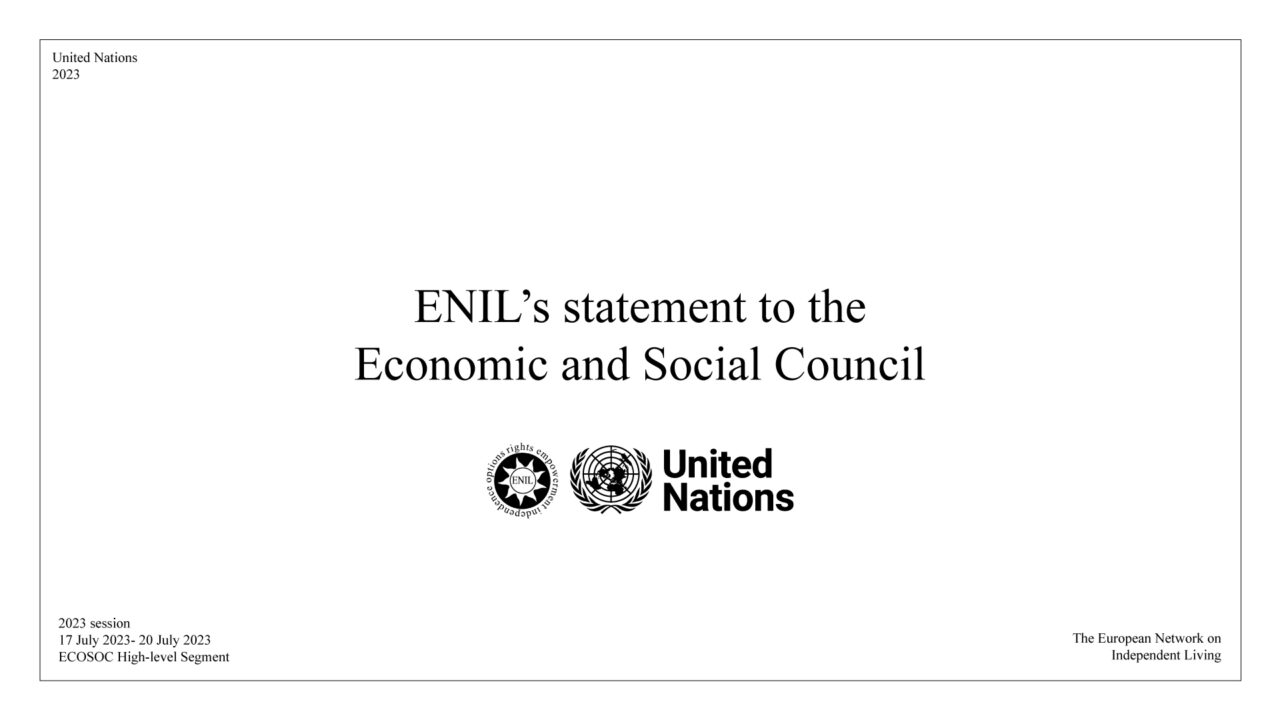Our statement:
“Prioritizing Independent Living across the Agenda 2030 for an inclusive recovery”, European Network on Independent living limited (ENIL)
COVID-19 had a disproportionate impact on disabled people, due to pre-existing inequalities. Disabled people living in institutions were more likely to be infected and die from COVID-19, and experienced isolation and exclusion. In recent times, inflation and increase in energy prices have further limited access to affordable housing. However, economic recovery efforts have often supported institutionalization instead of independent living initiatives.
Independent living should be a priority of recovery efforts after COVID-19 and the current economic crisis. This would ensure that disabled people are not left behind and are actively included in recovery, and that policies and programmes are in line with the Agenda 2030.
Disabled people are more likely to be in poverty, due to intersecting forms of discrimination, barriers to access inclusive education and employment, and lack of support options such as personal assistance. COVID-19 and the increases in cost of living and energy prices are further exacerbating poverty among disabled people, resulting in institutionalization. This hinders the achievement of the Agenda 2030, and in particular Sustainable Development Goals 1, 3, 4 and 7.
But efforts to improve the situation of disabled people during and after COVID-19 have often been in detriment of their right to independent living. Instead of supporting community-based services and personal assistance, countries have allocated resources towards building and renovating institutions, improving energy efficiency, and hiring staff. The achievement of Sustainable Development Goals 10 and 11 should drive reform, by addressing inequalities and building affordable housing where disabled people can live in their communities.
Despite the impact of recovery policies and programmes on disabled people, they are consistently left out of decision-making at all levels. Shrinking spaces for civil society and lack of capacity and resources of Disabled People’s Organizations impede the achievement of Sustainable Development Goals 16 and 17.
Therefore, for an inclusive recovery from COVID-19 that is in line with the Agenda 2030 and that supports Independent Living, we call on governments to end funding of institutions and accelerate funding for independent living, including through international cooperation, by investing in community-based services and individualized support. They must adopt a twin-track approach, with specific efforts to include disabled people while mainstreaming disability through all initiatives.
Furthermore, governments must ensure access to inclusive education and employment for all disabled people, must put in place social protection measures and devolved budgets for personal assistance, so disabled people can receive support on their own terms.
Finally, governments should engage disabled people and their representative organizations in all decision-making, and collect disability-disaggregated data for all relevant SDG indicators.



